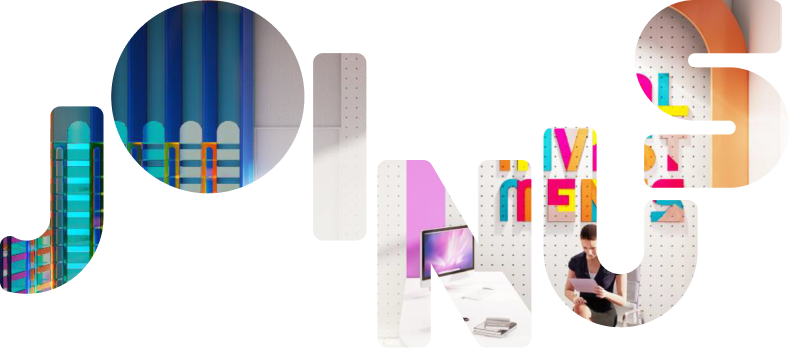Navigating the Dutch Social Security System
Understanding Dutch social security is key to protecting your startup—and yourself. Here’s what founders need to know to stay secure and compliant.

Starting a business in the Netherlands offers a wealth of opportunities, but it also requires a solid understanding of the local regulations and systems, including social security. For startup founders, navigating the Dutch social security system is essential to ensure compliance and provide security for themselves and their employees.
At The Unusual Space, we aim to support entrepreneurs at every stage of their journey. In this blog, we'll break down the key aspects of the Dutch social security system that startup founders need to know.
Why Understanding Social Security is Important
The Dutch social security system is designed to provide financial support in various circumstances, such as unemployment, sickness, and retirement. As a startup founder, understanding this system is crucial for several reasons:
Legal Compliance
Ensuring your business complies with Dutch laws and regulations.
Employee Welfare
Providing adequate benefits and security to attract and retain talent.
Personal Security
Securing your own social benefits and preparing for the future.
Key Components of the Dutch Social Security System
The Dutch social security system consists of several components, each covering different types of insurance and benefits. Here are the main elements relevant to startup founders:
1. National Insurance Schemes (Volksverzekeringen)
Old Age Pension (AOW)
Provides residents a basic state pension upon retirement age.
Survivors’ Benefits (ANW)
This program offers financial support to surviving relatives in case of the death of a partner or parent.
Long-term Care (WLZ)
Covers costs associated with long-term care for chronic illnesses and disabilities.
2. Employee Insurance Schemes (Werknemersverzekeringen)
These are mandatory for employees and include:
Unemployment Insurance (WW)
Provides benefits to employees who lose their jobs.
Sickness Benefits (ZW)
Covers wages during periods of illness for those not covered by their employer.
Disability Insurance (WIA)
Offers benefits to employees who become disabled and cannot work.
3. Health Insurance (Zorgverzekering)
Health insurance is mandatory for all residents, including startup founders and their employees. This includes:
Basic Health Insurance
Covers essential medical care, with additional options available through supplementary insurance.
Registering for Social Security as a Startup Founder
As a startup founder, you must ensure that you and your employees are registered for the appropriate social security schemes. Here’s how to navigate the process:
1. Registering Your Business
First, register your business with the Dutch Chamber of Commerce (KvK). This registration is necessary to obtain a company number (RSIN) and register with the tax authorities (Belastingdienst).
2. Registering as a Self-Employed Person
If you’re self-employed, you must register with the tax authorities for income tax and social security contributions. The Dutch Tax and Customs Administration will assess your situation to determine your tax and social security obligations.
3. Employee Registration
For any employees you hire, you must:
Withhold Social Security Contributions
Deduct the necessary Social Security contributions from your employee's wages and remit them to the tax authorities.
Register with the Employee Insurance Agency (UWV)
Ensure that your employees are registered with the UWV for unemployment, sickness, and disability insurance.
Contributions and Benefits
1. Social Security Contributions
Both employers and employees contribute to the social security system. The contributions are deducted from salaries and include payments for national, employee, and health insurance schemes.
2. Self-Employment Contributions
As a self-employed person, you’re responsible for paying your own contributions. These are calculated based on your income and include national and health insurance payments. Self-employed individuals must arrange their own disability insurance, as employee schemes do not cover them.
3. Benefits and Coverage
The benefits you and your employees receive depend on your contributions and eligibility. It’s essential to understand the coverage provided by each scheme to ensure adequate protection for all parties involved.
Planning for the Future
Understanding the Dutch social security system is not just about compliance; it’s about planning for the future. Here are some tips for startup founders:
1. Secure Your Retirement
Ensure you contribute to the Old Age Pension (AOW) and consider additional pension schemes to secure a comfortable retirement.
2. Protect Against Risks
Invest in disability and sickness insurance to protect yourself and your employees from unforeseen circumstances that could impact your ability to work.
3. Stay Informed
Regularly review your social security contributions and benefits to ensure you’re up-to-date with any changes in regulations and requirements.
Navigating the Dutch social security system can be complex, but it is essential to establishing and running a successful startup in the Netherlands. Ensuring compliance and providing adequate benefits for yourself and your employees is crucial for long-term success. At The Unusual Space, we offer support and resources to help startup founders understand and manage their social security obligations.
Ready to navigate the Dutch social security system and ensure your startup’s success? Contact The Unusual Space today, and let’s build a secure and thriving business together!



